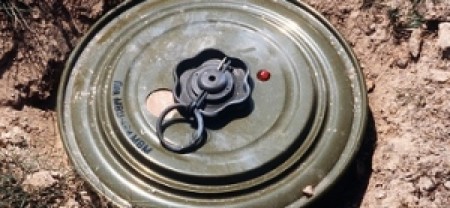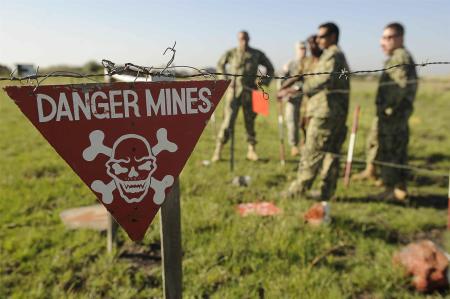Nineteen people were killed and ten others injured in Guinea-Bissau on Saturday when a minibus hit a landmine on a remote road about 40 miles (64 km) from the capital, Bissau. According to Reuters news agency, three of the injured have since died from their injuries in hospital.

The bus driver was among three people who came out of the accident unscathed. This was according to a report by Augusto Blute, the doctor who treated the victims.
“The vehicle was overloaded, I was on the roof with some other passengers when we heard a loud boom. The bus was cut in two,” one survivor told Agence France Presse. Most of the victims were flung across the road and some bodies torn to pieces by the blast, he added.
The vehicle had swerved to avoid a puddle in the road ahead when it drove over the mine. The mine was believed to be from the country’s independence war with Portugal (1961-1974).
While achieving its independence in 1974, the West African nation has been beset by conflict and internal strife ever since. No president has ever been able to finish his term in office. Its last coup was in 2012. The coastal country is known as Africa’s “first narco-state” and has become a haven for cocaine smugglers from Europe due to its weak infrastructure and vast unpoliced mangrove regions.
Portugal still imports the greatest share of goods from the country, and 80 percent of its population depends on cashew farming. Guinea-Bissau has a population of 1.6 million people and covers 28,000 square km.
According to the National Mine Action Coordination Centre, approximately 4,000 anti-personnel and anti-tank mines were left behind by the Portuguese colonial army after the war.









